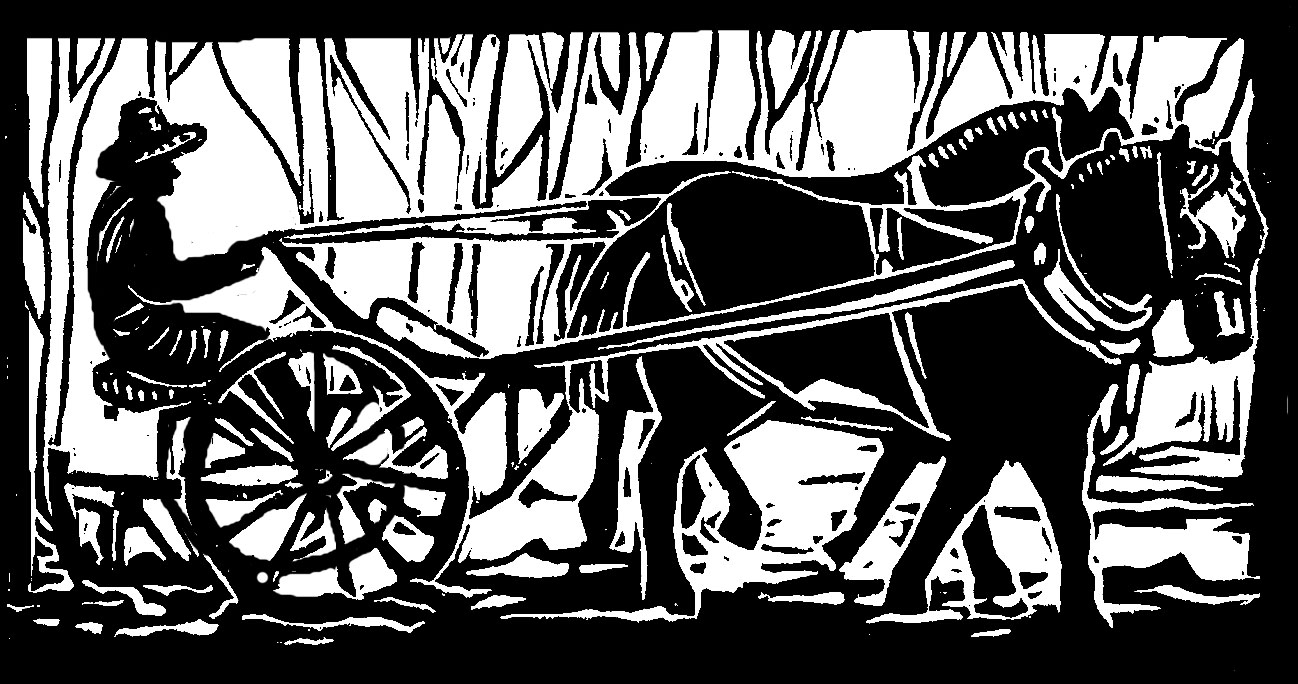Irrigation drives this vegetable farmer bonkers. In the past, it has worked very nicely to busy myself with other chores while my fellow farmer tackled the irrigation duties, which do not drive him bonkers, despite our old, leaky, kinked-up driplines and holey headers system.
This year, however, for the first time, we used our beautiful new irrigation system, with brand new drip lines and fancy new headers, which came to us thanks to a wonderful grant from the Natural Resources Conservation Service. I needed to help protect, preserve, and prolong the life of all this nice new irrigation; it was also high time to conquer my irrigation-induced madness.
After all, how could rolls of mere plastic and little metal bits deliver me into such a towering rage, year after year? I was determined to vanquish this deterrent to harmony in myself, the farm, and the universe.
Thus I went boldly out to the field armed with masses of twine and a good sharp knife. Maybe my problem was not having enough stuff to corral the irrigation while I was rolling it up. I would tie it so firmly over and over to itself that it couldn't play any of its nasty irrigation tricks. (Or maybe if all else failed, I could cut it up into tiny pieces with my good sharp knife!)
Alas, though I nearly strangled the irrigation with string and twine, it did not help a bit. The irrigation was still a kinked up, writhing pile of black plastic, and I was still a kinked up, writhing pile of rage. My fellow farmer wisely gave me lots of room, and offered no advice. He simply went along, tidily rolling up three lines in the time it took me to mangle one.
I surreptitiously studied my fellow's technique: what the heck was he doing differently than I was? An idea came creeping into my overheated brain: maybe I was trying to do it all too quickly. I was just trying to get it over with because I hate it. Maybe I needed to slow down.
I took a deep breath. I decided to pretend I was my fellow farmer, who seemed to think rolling up irrigation could be a pleasant affair, especially on a fine autumn day, and hey, so what if there was a very occasional kink in the drip line? That's just the nature of irrrigation.
I tried again. I went very very slowly. I quit caring how much my fellow was ahead of me. I quit trying to get it all done before lunch. I quit worrying that I might put a kink in the new driplines. I just rolled with it, so to speak.
And by golly, at the end of my 200 feet bed, I had rolled my first circle of tidy, hardly-kinked-at-all irrigaton. Plus I had a great start on my best selling self-help book for irrigation roller-uppers:
Tips for Those Taxed with Rolling Up Irrigation
Firstly, minimize distractions. Have a hearty snack before you start the project. Tie your hair back firmly, or cut it all off, so that no wisps can poke your neck or your cheek. Don a hat that doesn't constantly fall in your eyes. Wear your least raggedy clothing, or the end of the dripline will catch on every frayed bit or hole.
Choose your timing carefully. Roll up your driplines on a sunny, cool day, with no bugs. Arrange for pleasant bird-song and pretty clouds in the sky, while you're at it. Don't wait to roll up your irrigation until it is covered in snow, which makes it darned hard to find and darned cold to handle.
Don't compare yourself to anyone else. Especially your fellow farmer, who is working three times faster than you are, and whistling cheerfully, to boot. Why, you are you, and you have your own strengths and challenges!
Give yourself a little respite. Even though that same fellow farmer rolls up driplines both coming and going, up and down the field, you can decide to roll from only one direction, which allows you a 45 second period of peace, as you make your dripline-free way back to your starting point.
Savor whatever you are able: Savor the bird song, or savor the lack of bugs, or the lack of snow, or savor the fact that you are lucky enough to have a working irrigation system, and a pond, and water. Or you could actually savor the fact that your fellow farmer is working three times faster than you are, because it will save you lots of irksome work.
Or, indeed, thanks to your lovely new slowing-down-as-you-are-rolling-up method, you could savor the harmony you are helping to create in yourself, your farm, and the universe.
Originally published in the Monadnock Shopper News, Jan 17- Jan 28, 2018
